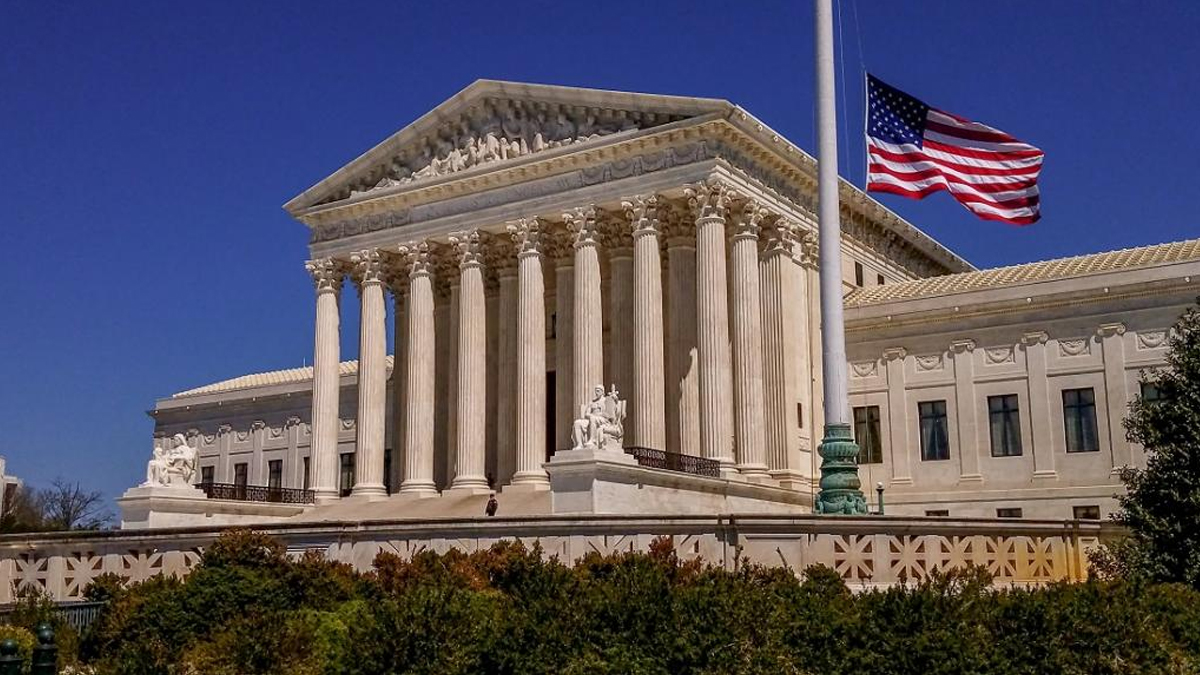- Resources
- The Supreme Court Clarifies the Appeal Process for Legal Issues in Summary Judgment Denials
The Supreme Court Clarifies the Appeal Process for Legal Issues in Summary Judgment Denials
October 6, 2024

In a significant decision, the Supreme Court has elucidated the procedural necessities for contesting solely legal matters determined at the summary judgment stage. The case centered on Kevin Younger, who claimed that while he was held in a Maryland state correctional facility, Officer Neil Dupree directed three guards to assault him. Younger filed a lawsuit against Dupree under 42 U.S.C. §1983 for the excessive use of force, resulting in a jury awarding him $700,000 in damages.
Before the trial, Dupree requested summary judgment by Federal Rule of Civil Procedure 56(a), contending that Younger had not fully utilized the administrative remedies mandated by the Prison Litigation Reform Act (PLRA). The District Court rejected this request, observing that there was no legitimate dispute regarding whether the Maryland prison system had conducted an internal investigation into the assault on Younger, thereby fulfilling the exhaustion criteria.
During the trial, Dupree failed to provide any proof regarding the exhaustion argument. The jury deemed Dupree and four co-defendants responsible. Dupree did not submit a post-trial request under Rule 50(b), which permits a renewed request for judgment as a legal matter. Instead, he contested the District Court’s rejection of his exhaustion argument in the Fourth Circuit.
The Fourth Circuit, adhering to its established precedents, dismissed his appeal. The Court stated that any claims or defenses dismissed at summary judgment remain viable for appellate examination if they are renewed in a post-trial request. This position created a divergence between the Fourth Circuit and other appellate courts, leading the Supreme Court to grant certiorari.
In a unanimous ruling, Justice Barrett articulated the Court’s stance, establishing that a post-trial motion under Rule 50 is unnecessary to preserve a strictly legal issue determined at summary judgment for appellate review. This ruling differentiates between factual and legal matters, highlighting that while factual findings made at summary judgment are overridden by the trial record and necessitate renewal in a post-trial motion, strictly legal issues are not influenced by trial outcomes and continue to be subject to appeal.
The Supreme Court referenced its earlier decision in Ortiz v. Jordan, which held that an order denying summary judgment on sufficiency-of-the-evidence grounds is not appealable after trial. The rationale is that the entire trial record supersedes the pretrial summary judgment record, necessitating a renewed motion to challenge the sufficiency of the evidence. However, this rationale does not apply to pure questions of law, which remain unchanged regardless of trial proceedings.
Justice Barrett’s opinion also addressed Younger’s counterarguments, including the assertion that the Court’s decision in Ortiz broadly barred all denials of summary judgment from appellate review. The Court clarified that §1291, while delaying the review of interlocutory orders until final judgment, does not preclude their review entirely. The Court also dismissed concerns about creating a two-track system for summary judgment, noting that Rule 56 distinguishes between factual disputes and legal conclusions.
Finally, the Court acknowledged Younger’s concern about the difficulty distinguishing between factual and legal issues but affirmed the ability of appellate courts to make such distinctions. The Court remanded the case to the Fourth Circuit to determine whether Dupree’s exhaustion defense constituted a purely legal issue and to evaluate any other preserved arguments.
This decision reinforces the principle that purely legal issues decided at summary judgment do not require a post-trial motion for preservation and are immediately appealable following a final judgment. This distinction ensures that legal questions can be efficiently reviewed without unnecessary procedural redundancy, streamlining the appellate process for litigants and courts alike.
The Allied Outsourcing, a reputable company specializing in law-related services, offers various options customized to meet its customers’ requirements. With highly proficient lawyers and legal experts, The Allied Outsourcing takes pride in providing excellent legal help across different areas, such as contract law, intangible property privileges, business management, and regulatory conformity.
The company’s unwavering dedication to superiority and customer contentment is apparent in its meticulous approach to each situation, guaranteeing thorough research, strategic assessment, and productive representation. Leveraging state-of-the-art technology and industry knowledge, The Allied Outsourcing consistently delivers timely and cost-efficient solutions, empowering customers to confidently and successfully navigate complex legal issues.
With a team of highly proficient lawyers and legal experts, The Allied Outsourcing is a reliable partner that provides trustworthy legal guidance and assistance across various areas, including contract law, intangible property rights, business management, and regulatory compliance.
Whether it involves creating contracts, supporting lawsuits, or offering regulatory advice, The Allied Outsourcing is a reliable associate that delivers trustworthy legal guidance and assistance to companies and organizations globally.
If you are looking for virtual assistants who could help you ace your legal business, reach out to us at https://thealliedoutsourcing.com/contact/
All Categories
- Agile Legal Support (1)
- Case Law (88)
- Case Studies (6)
- Demand Letter (14)
- Deposition Summaries (11)
- Legal Outsourcing (3)
- Legal Research (72)
- Marketing (1)
- Medical Summaries (14)
- Others (4)
- Personal Injury (54)
- Virtual Assistant (59)
- Virtual Paralegal (2)
Related Blogs
Author
Maithili Salunkhe
Designation: Content Writer and Creator
4 Years extensive experience in content creation to offer specialized legal writing services. A deep understanding of legal principles and the ability to translate complex…Reviewer
Ruchi Bhakhri Sharma
Designation: CEO
25 years of combination of serving as a lawyer in India and paralegal support to US lawyers. Led a diverse team of legal professionals, project…





